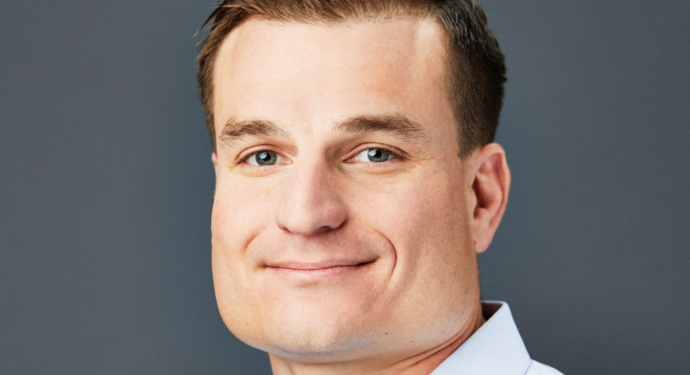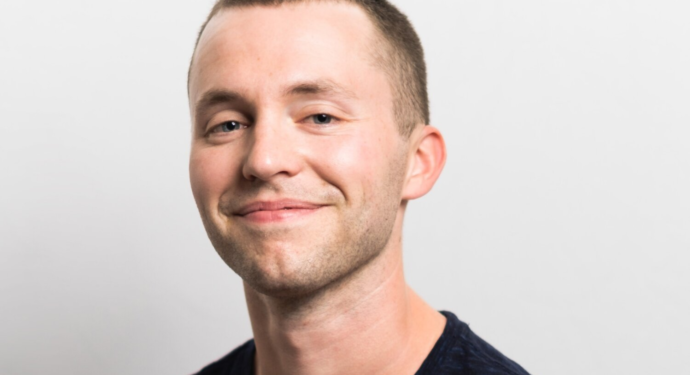
Diego Oppenheimer, Founder and CEO at Algorithmia
July 21, 2020

What were you doing before you quit your job?
Before I quit my job, I was working as a PM at Microsoft on the Excel team in analytics and BI. One day my friend and fellow Carnegie Mellon alumni Kenny Daniel called me with an idea – at the time he was in academia working on his PhD in Artificial Intelligence. We discussed how machine learning would be the most important technology we would see in our lifetime, but making models accessible and usable was a problem. At Microsoft, I had started looking more at predictive analytics and using code from Microsoft research for things like automatic pivot tables. I could directly see the difficulty of discovering and productionizing these models. I had the “ah-ha” moment and saw what Kenny was talking about. There was a huge problem that needed to be solved.
When did you realize you wanted to quit your job?
Quickly after Kenny and I started talking more, Algorithmia began to form. I got permission to moonlight, and would spend my days in Microsoft and my nights working late on building the company with Kenny. Eventually, it got to a point where my wife told me I had to make a choice between the two; doing both was not sustainable. Luckily, she let me pick the crazy choice to start my own business.
What initial hesitations did you have about quitting your job and how did you overcome them?
I had really good relationships with my managers which made things a lot easier. Microsoft, being entrepreneurial by nature, valued the creativity in tech and was really understanding. Once I looked beyond the comfort of my job and saw this opportunity, I knew I had to take it. By treating the situation right and not burning bridges, I could come back if things didn’t work out. I had already been invested in start-ups as a coach and mentor at Techstars helping companies manage KPIs and analytics. It helped me see the early journey of customer validation and early sales and build confidence around starting on a journey of my own.
What are you doing now?
Algorithmia raised its Seed Series in August of 2014 and later Series A in 2017 and Series B in 2019. I remain CEO and Kenny is CTO, and we have seen Algorithmia grow from an algorithm marketplace to a platform offering valuable tooling to deploy, serve, and manage models at scale. The original marketplace is more of a feature now than the main use, but it’s helped us with our mission to enable organizations to take advantage of what machine learning can offer as quickly as possible.
What has been the most helpful to your journey?
Initially when we got our first round of funding, using our early investors as a sounding board was huge. We’d built a great group of angel and seed investors to help us work through problems of customer acquisition and marketing. There was a ton of value in the expertise and advice they had, especially when dealing with enterprise customers.
We really focused on getting Algorthimia’s name out there before worrying about monetizing the product. There was a learning curve in how to work with enterprises and the guidance from investors led us to our first big customers: Nike and Merck. We were able to better navigate the organizations and find a champion who would share value in what we were doing and wanted to solve problems for their business.
Looking back on your experience of founding a company, what do you know now that you wish you knew before?
Working with enterprise customers was new to us when we shifted focus from the marketplace to our enterprise product. I learned the importance of understanding when I am at a dead end, which still can be hard today. Often, getting meetings can be easy, but unintentionally there can be false hope. It’s important to identify this as early as possible to avoid wasting time, and implementing timelines to push things along can help.
Another important lesson in working with enterprises is discovering your champion and economic buyer. Your champion can help get you there, but ultimately you have to identify who makes the decisions and approves the funds. At startups you are always running against the clock, and to save time, I had to learn to tactfully identify the economic buyer as soon as possible. Finding this person who is also a believer in your product is really important to be successful. In the maze of enterprise companies you can get 100 “yes” responses, but a single “no” can derail you.
Any other advice you can share for others contemplating a similar path?
If you have an idea and think something is there, take the opportunity. The opportunity costs of leaving a comfortable job in tech are low in exchange for the experience.
Identify ways to de-risk your company to investors. Like everything, pitching takes a lot of practice. Start with the angels and VC’s lower on your list and find ways to de-risk their investment. ‘Yes’ is the best answer you can get, and ‘no’ is the second best. Try to challenge a ‘maybe’ to go one direction or the other.
Build a support network. They say starting a company can be a lonely path, but you can make it less lonely. Early on, I had a group of founders I would meet with regularly, and sharing some of these unique experiences with them helped me solve my problems and learn from what others were facing as well.
Listen to everyone’s advice, but be picky about what’s good. There’s a lot of bad advice out there, so find the nuggets useful to you and your business. I always tell people to take the 5{7da1b4016315e6906389b7680f0f0ab0dbfee16dff356723890b92cef8bfc446} out of what I say that is useful and forget the rest.
Spend time making mentor and coaching relationships over time. To this day I always make time to talk to new founders. The help and conversations I had early on were so valuable, and it’s something I continue to repay.
